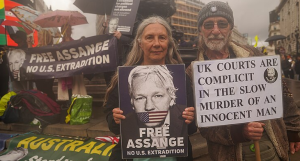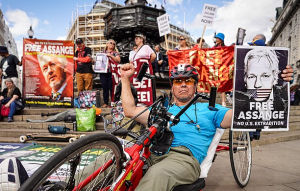Reacting to the High Court’s decision to grant Julian Assange permission to appeal his extradition to the United States, Simon Crowther, Legal Adviser at Amnesty International, said:

“The High Court’s decision is a rare piece of positive news for Julian Assange and all defenders of press freedom. Amnesty International considers that if extradited to the USA, Assange will be at risk of serious abuse, including prolonged solitary confinement, which would violate the prohibition on torture or other ill-treatment.
“The USA’s ongoing attempt to prosecute Assange puts media freedom at risk worldwide. It ridicules the USA’s obligations under international law, and their stated commitment to freedom of expression. In trying to imprison him, the US is sending the unambiguous message that they have no respect for freedom of expression, and that they wish to send a warning to journalists and publishers everywhere: that they too could be targeted, for receiving and publishing classified material — even if doing so is in the public interest.
“As the fight continues in the UK courts, we call on the USA to finally put an end to this shameful saga, by dropping all the charges against Assange. This would bring the process in the UK to an immediate halt, and Julian Assange will be freed. Assange has already spent five years in prison in the UK, much of which has been arbitrary.”

Background
On 20 May, the UK High Court has announced its decision that Julian Assange will have permission for his appeal against extradition to the US to go ahead. This follows the US authorities filing fresh diplomatic assurances, after a hearing that took place on 20-21 February.
Amnesty International has reiterated concerns that Assange faces the risk of serious human rights violations if extradited to the US and has warned of a profound ‘chilling effect’ on global media freedom.






